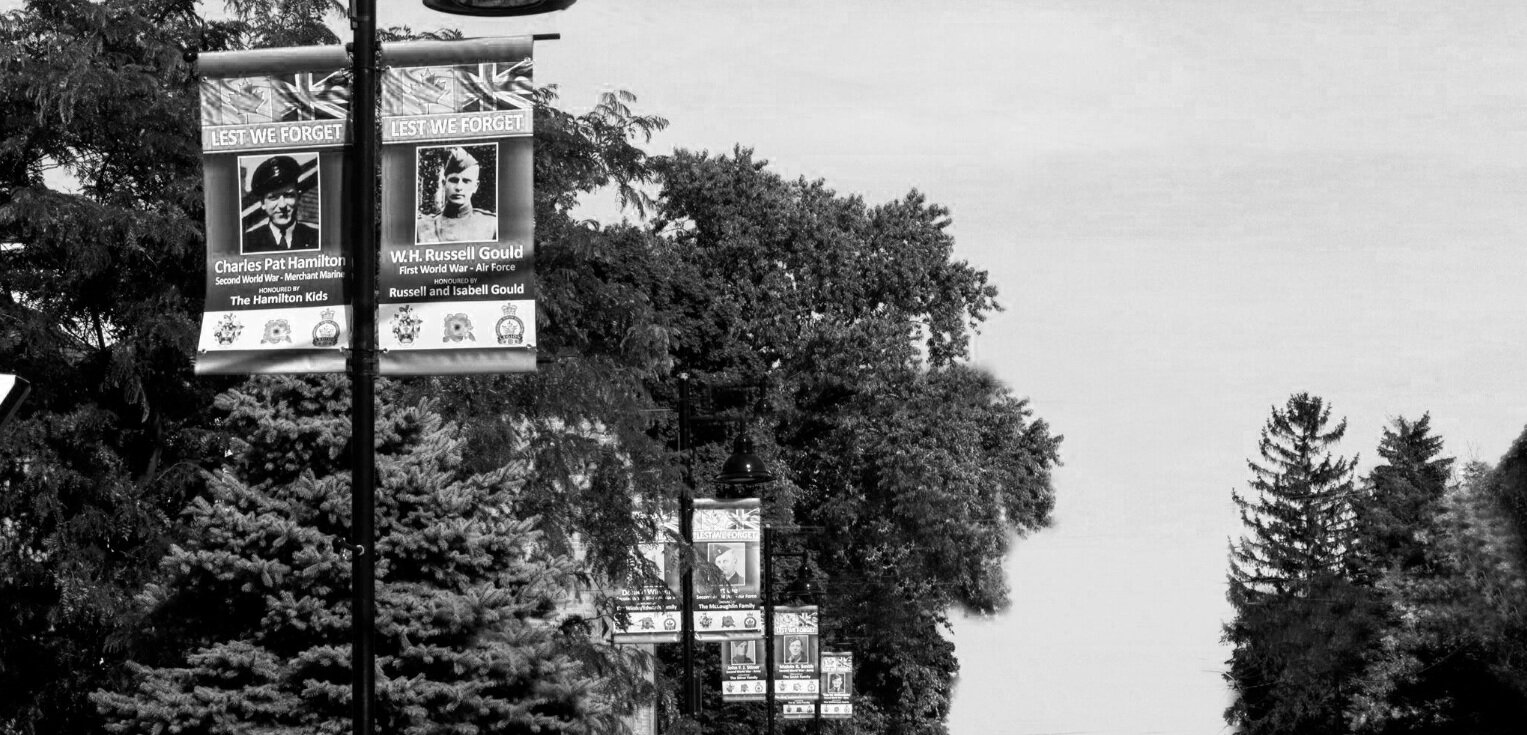
Harry E. Mason
Harry was a banker when enlisted for service in the First World War on October 12, 1916 in London, ON at the age of 26. He received his basic training at Exhibition Camp in Toronto, ON, and then sailed overseas on January 25th, 1917, arriving in Liverpool on February 6 and at Shorncliff on February 7 1917. He was assigned to the Canadian Army Service Corps on May 14, 1917 and was selected to receive officer training, which he received at St. Albans beginning September 24, 1917, graduating as an officer cadet on May 28, 1917. Family notes follow……
Interesting story relating to enlistment: I had been turned down in October 1914 as physically unfit for overseas military duty, much to the relief of my dear parents, God Bless Them, who felt at this time there was very many better conditioned than myself to serve God and Country, for my only brother had been taken from this life (pneumonia) a year previous leaving me the one to carry on the male traditions of our name.
I went to Northern Ontario prospecting for gold, not so much to find the elusive gold but to harden my body to withstand the rigors of soldiering for Our God, Freedom, King and Country. Toughened by a year of prospecting at 5’6” and 110 lbs. I enlisted as a private in London Ontario and was send to Exhibition Camp Toronto.
Note: promoted to Lance Corporal and Sergeant while in the Canadian Army; promoted to 2nd Lieutenant when transferred to the British Imperial Army; Post war years promoted to Captain.
Description of training: We embarked from Halifax to Great Britain on January 25, 1917. On our trip across the Atlantic Ocean I saw burning ships at night which we didn’t dare approach. During World War 1, hundreds of ships disappeared without a trace; they left one harbour but never arrived at another port. We arrived at Liverpool England February 6, 1917. On arrival we all were given seven days leave. We returned to Aldershot for training. It was during this training period the brigadier General Steele from Calgary Alberta held a must parade (that means everyone must go on parade from the cooks to the orderlies). Twenty-one of us were selected to take up officers training to become officers in the Imperial Army. We were sent to St Albans for our training to become officers.
The officer training was somewhat difficult especially for anyone who only had a short high school education to fall back upon.
After officer training I was discharged from the Canadian Army and re-enlisted in the British Imperial Army as a commissioned officer 2nd Lieutenant. I was selected as one of the officers to accompany my regiment to the Murman Coast in the Arctic Ocean.
At Mitchett Camp, Aldershot we were outfitted with arctic clothing. THe secrecy of our destination was well kept as we didn’t know the port of our embarkation until our arrival at Dundee Scotland. It was late summer of 1918, our ship to board was the Trazos Montes.
Where I was stationed and for what purpose:
Our training was to prepare us to go to Murmansk Russia to keep the Germans from establishing a submarine base at Kola on the Kola River which ran to the Arctic Ocean 1400 miles from the North Pole. I didn’t wish to go to Russia, but had no choice in the matter. I was the only Canadian with our regiment, the Alexandra Princess of Wales Own Yorkshire Regiment - the Green Howards. They called us the Bloody Green Howards.
Mission:
The mission was called the British Expeditionary Force in Northern Russia. Mutiny and shipwreck turned a five day trip in to six weeks.
Wartime Memory:
The 3rd day out from Dundee we were somewhere between the Shetland Islands and the coast of Norway in the North sea. It was around midnight. I was lying on my upper birth reading with my tunic and boots off when the ship gave three distinct mumps. I knew we had all told 3,000 troops on board packed like sardines in hammocks, one hammock against another and many of my own men were deep down on different decks. The result of someone shouting down through the hatchways, “the ship has been blown up and sinking” I leave it to yourself the picture of thousands of men trying to get out of a death trap on a sinking ship.
I drew my revolver, forced the man back to the stairway up which dozens of shouting stokers etc. were now coming and in language such as they understood made plain that more than one would die before they passed me. After what seemed to take half an hour, excited officers came and took over assuring them men on the stairway the ship was not sinking. I along with our own officers went down to our men to assure them nothing was amiss and then back in our mess drinking coffee splashed with rum for I think all of us were somewhat upset by this time for the ship had not headway, engines stopped and what really caused our consternation our wireless had been wrecked, so we knew that spies and traitors were aboard.
